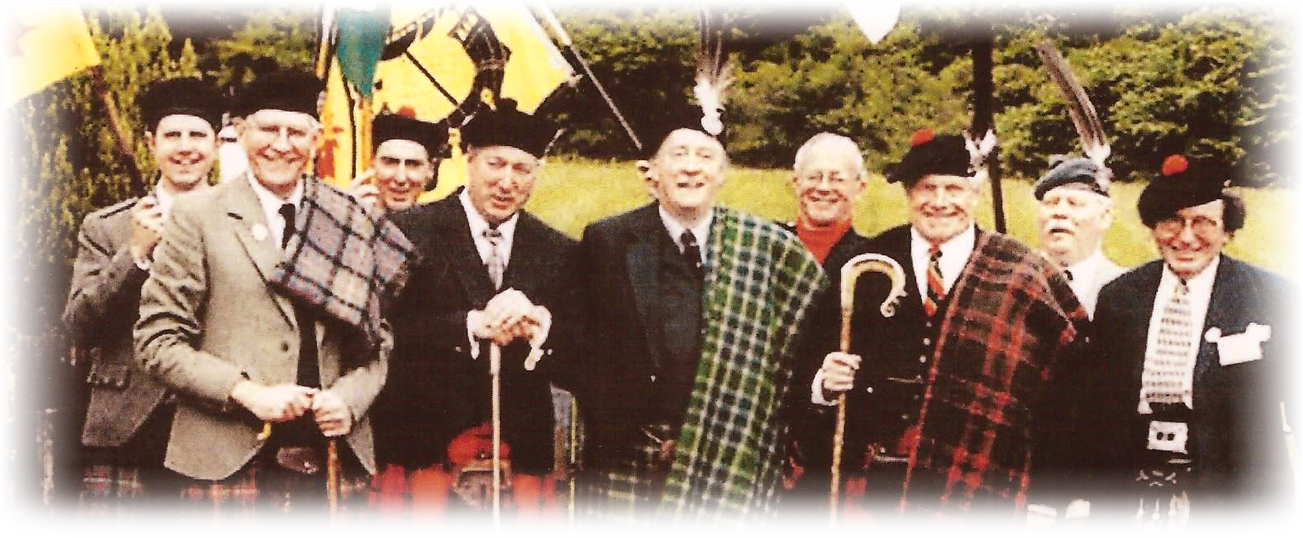Chiefs of Clan Donald At A Glance

Left to Right (front row):
Ranald Macdonald of Glengarry;
Sir Ian Macdonald of Sleat;
The Right Honorable Godfrey Macdonald of Macdonald;
Ranald Macdonald of Clanranald;
The Right Honorable Alexander McDonnell, The Earl of Antrim




